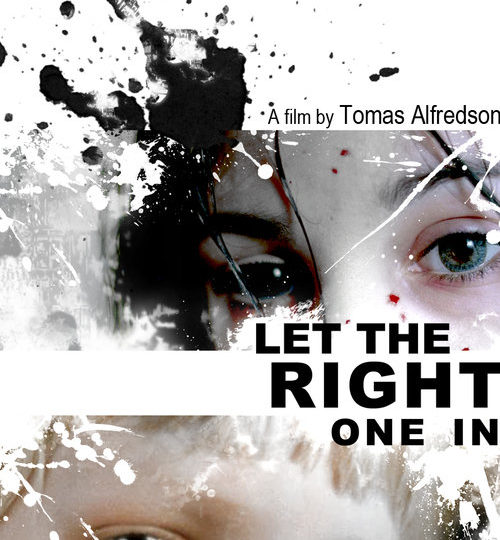
Let The Right One In (2008)
Director: Tomas Alfredson
Let The Right One In (Låt den rätte komma in); has become one of the most peculiar independent films of the recent years. The film adaptation of the novel by John Ajvide Linqdvist by the Swedish director Tomas Alfredson, is one of the most rewarding cinematic surprises in a long time.
We have a plot that focuses on vampirism wrapped in social criticism, drama, suspense and romanticism, a humble and detailed direction, an unforgettable atmosphere, a soundtrack full of nostalgia, and an extraordinary cast. Let The Right One In tells the story of Oskar (Kåre Hedebrant), a 12 year old boy who suffers through continuous bullying from his classmates. In the solitude and darkness of his room, Oskar dreams of taking revenge on them.
In the neighborhood where Oskar lives, a series of strange murders begin to happen. Oskar meets his new neighbor, the girl Eli (Lina Leandersson), with whom he starts a friendship full of mystery since their meetings only take place at night. We begin to experience a set where the social drama is the main plot at first culminating into an incredibly satisfying moment where Oskar finally brutally strikes back against the kids that bully him.
As the film moves on suspense takes over, manifesting itself in the cold revelation of the dark serial killer (Per Ragnar), who is known as the “father” of little Eli. It is evident that Eli needs the blood of the victims to survive (that explains why she can only go out at night), and that is how the fantastic element that surrounds the film is corroborated. What at first seems a dark and common fable, moves its content towards a development of introspective in a poetic and extremely tender tone.
We will have to decipher the personality of Oskar and Eli, two very different characters, yet united by similar problems and emotional questions. The approach and the deep loneliness that Oskar and Eli share becomes a brutal need of affection for both: him for being an outcast who lives in isolation and apathy, and her for the lack of human qualities that make her live as a normal person.
Both need each other to reach the desired feeling of freedom and acceptance, both need each other to nourish themselves with life. For Oskar, the darkness and oppression of the night means the most awaited moment of the day, since only at that moment he will be able to meet his only friend and confidant. Contrasting with the brilliance of the day, the darkness of Swedish winter takes over the scenes, the changing atmospheres are used brilliantly to describe the disaffection and emotional isolation of the characters.
I’m not a fan of vampire movies, but I have to admit that this one left me more than fascinated. The humility that surrounds the film, the coldness and passion of its development, the minimum budget used for the production, the message of innocence and cathartic love, the hope that comes from taking someone out of darkness, and the brilliant aesthetics that evoke emotional pain are destined to leave this film remembered as an artistic exponent of the genre and a possible classic of fantasy cinema.
by Octavio Carbajal González

Wonderful review that captures the beautiful dark essence of this movie perfectly. This is the movie that Twilight would never be.
Thank you so much Pete !. Thank you for taking the time to read, I really appreciate it. Couldn´t agree more with you, Twilight will never come close to the artistic quality of this movie.
Very motivational review, I’ll be watching this soon.. Thank you Octavio !
Thanks, Chris 🙌
Yes! Was so excited to read this, hands down a beautiful movie and you captured it all perfectly here. Up there with ‘Only Lovers Left Alive’ for that alternate take on a Vampire movie. Excellent work.
Thank you so much for your support, Claire !
Yes! Was so excited to read this, hands down a beautiful movie and you captured it all perfectly here. Up there with ‘Only Lovers Left Alive’ for that alternative take on a Vampire movie. Excellent work.
Thank you so much for always supporting my reviews, Claire !. You’re absolutely right, Jarmusch’s “Only Lovers Left Alive” stands out as an excellent vanpire movie 😊👌
vampire**. Cheers, Claire 😊